Flavour your meals with spices. They add extra flavour without additional fat, calories, sodium or cholesterol and have additional health benefits too. Spices contain anti-oxidants, trace minerals and other health-giving compounds that can help ease chronic conditions. If you are on medication, consult your doctor about which spices are safe for you to use as some types of spice may interfere with medication.
Many spices have a mild flavor so if you're not used to spices in your cooking, try using milder types at first or use stronger flavoured spices in smaller amounts. Use fresh spices whenever possible. Spice flavours and health-giving properties are best when the spices are at their peak as their active compounds degrade over time. Store spices properly using airtight containers. Keeping them away from heat, moisture and direct sunlight will help preserve their quality.
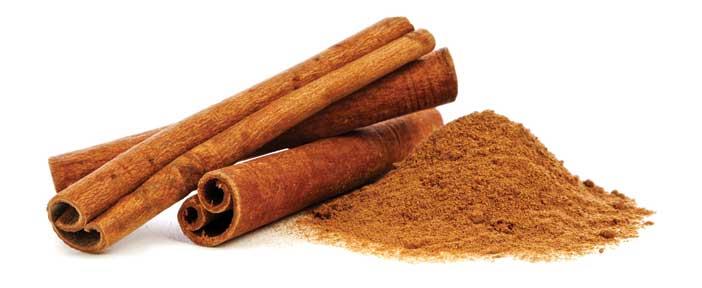
Cinnamon
Cinnamon may help to control blood sugar by lowering post-meal blood-sugar spikes. The effects are limited so this is not a substitute for a properly controlled diet and diabetic medication. Cinnamon is strongly anti-oxidant so a daily dose can help top up your anti-oxidant intake. You need around 1.5 teaspoons of cinnamon daily for it to be effective. The spice is strong tasting, so you might want to spread your intake throughout the day.
How to use cinnamon
- Sprinkle ground cinnamon over hot drinks, preferably sugar-free and decaffeinated, with fat-free milk. Cinnamon even tastes good in tea.
- Mix half a teaspoon of cinnamon into decaffeinated ground coffee before brewing.
- Stir a teaspoonful of cinnamon into a pot of fat-free yogurt and pour it over a mix of wholegrain cereal or a handful of grapes and almonds.
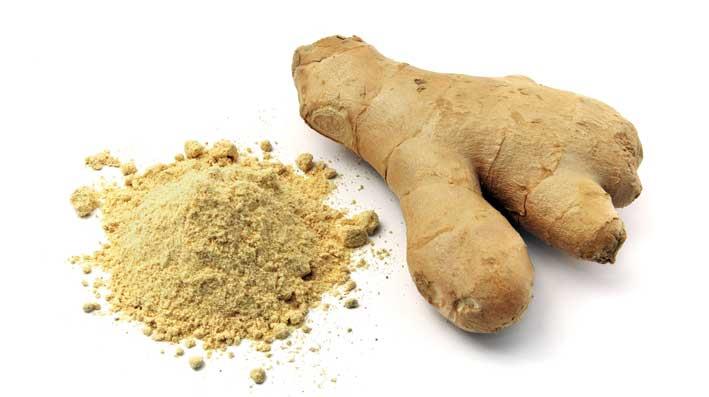
Ginger
Ginger is anti-inflammatory so it can help soothe arthritis pain and other inflammatory conditions. It is traditionally used to relieve colds and upset stomachs and can help reduce the nausea of morning sickness or post-surgical and post-chemotherapy nausea. You'll find fresh ginger root in the vegetable section of larger supermarkets.
How to use ginger
- Grate fresh ginger and sprinkle it in soups, or toss it with sliced vegetables in a stir fry.
- Peel and slice fresh ginger root and brew a few pieces with a slice of lemon for a refreshing, caffeine-free hot drink.
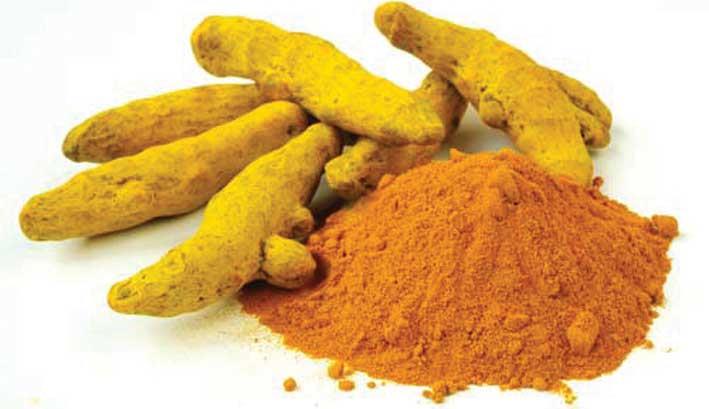
Turmeric
Turmeric is related to ginger. It is more commonly found here in dried and ground form but if you can find the fresh, unground version, buy that instead. In India, turmeric is crushed and mashed into a paste which is then applied to skin wounds to help healing. It is also brewed with hot water into a tisane and drunk to relieve colds and other respiratory problems. Folk medicine aside, turmeric is anti-oxidant and anti-inflammatory and can help relieve arthritis pain and other inflammatory conditions. A few studies have shown that curcumin, a compound found in turmeric, can help suppress enzymes that activate cancer growth and can inhibit tumour cell growth. However, the evidence is not conclusive.
How to use turmeric
- Add ground turmeric to the water when cooking rice.
- Mix ground turmeric into fat-free yogurt to use as a sandwich spread.
- Sprinkle ground turmeric onto boiled egg salad.
- Peel and chop a small piece of fresh turmeric root and brew it into tea.
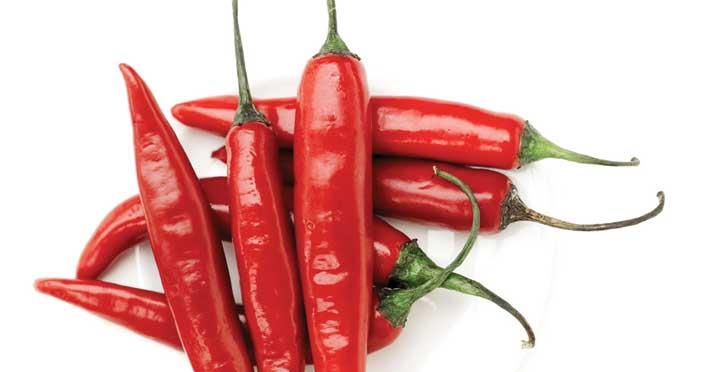
Chilli Pepper
Chillis are particularly good for health. They are a good source of vitamin-C, which is essential for collagen synthesis. It helps maintain the health of the eyes, blood vessels, skin and vital organs and helps to boost immunity to infection. The anti-oxidant properties of chilli help mop up free radicals generated by disease and stress and which increase inflammation. Chillis contain trace minerals including potassium, which helps to control heart rate and blood pressure, manganese, which your body uses to produce a particular antioxidant enzyme, and iron, which is essential for blood health. They are also a good source of B-complex vitamins, vitamin A and flavonoids.
How to use chilli pepper
- Deseed and finely shred a chilli pepper and sprinkle it over your food instead of black pepper.
- Finely slice a chilli and add it to soup.
- Make up a chilli paste (harissa) and use it as a dressing on meat and fish dishes. Chilli paste is concentrated and very hot, so use it sparingly.
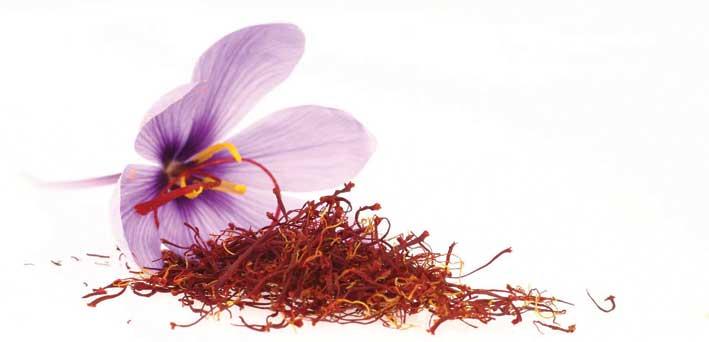
Saffron
Saffron is derived from Crocus Sativus flowers. The yellow-coloured stigmas and styles are removed when the crocus flower is in full bloom, and then used as a spice. Saffron contains chemical compounds that give it its characteristic flavour and colour. Many of its compounds have anti-oxidant properties, and help to prevent disease and promote health.
Anti-oxidants help to protect the body from stress, cancers, and infections and help promote immunity. Saffron also contains trace minerals including potassium, calcium, manganese, iron, selenium, zinc, magnesium and copper, which help regulate the heart rate and blood pressure, ensure healthy red blood cell production, which is important for overall health, and help in the production of essential enzymes.
Saffron also contains vital vitamins including A, C and some B-complex vitamins that are crucial to good health. Buy whole, dried saffron if you can, preferably in sealed containers. Fresh saffron is hard to come by but it should be bright crimson-red and leave a yellow stain on your fingers. Genuine saffron strands are 2-4cm in length. Store it in a closed container, preferably in the fridge. Exposure to light reduces its potency and flavour.
Note: avoid high doses of saffron during pregnancy.
How to use saffron
- Add a pinch of saffron to rice dishes to add colour and flavour.
- Ground saffron threads to a paste and rub into white meats before cooking.
- Add a pinch of saffron to a mug of hot water and allow it to steep before adding it to the cooking pot.